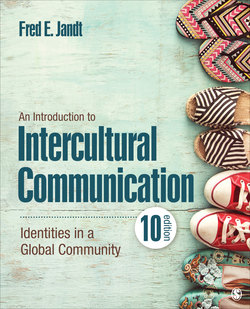Читать книгу An Introduction to Intercultural Communication - Fred E. Jandt - Страница 77
На сайте Литреса книга снята с продажи.
Anxiety
ОглавлениеThe first barrier is high Anxiety. When you are anxious due to not knowing what you are expected to do, it’s only natural to focus on that feeling and not be totally present in the communication transaction.
For example, you may have experienced anxiety on your very first day on a new college campus or in a new job. You may have been so conscious of being new—and out of place—and focused so much of your attention on that feeling that you made common mistakes and appeared awkward to others. Sugawara (1993) surveyed 168 Japanese employees of Japanese companies working in the United States and 135 of their U.S. coworkers. Only 8% of the U.S. coworkers felt impatient with the Japanese coworkers’ English. While 19% of the Japanese employees felt their spoken English was poor or very poor and 20% reported feeling nervous when speaking English with U.S. coworkers, 30% of the Japanese employees felt the U.S. coworkers were impatient with their accent. Almost 60% believed that language was the problem in communicating with the U.S. coworkers. For some, anxiety over speaking English properly contributed to avoiding interactions with the U.S. coworkers and limiting interactions both on and off the job.
The German sociologist Georg Simmel’s (1858–1918) concepts of “the stranger” and “social distance” were precursors to C. R. Berger and Calabrese’s (1975) anxiety/uncertainty reduction theory (Rogers, 1999). This theory assumes that during the initial phase of interaction with another person, your primary communication goal is to reduce your uncertainty about that person. Thus, you are attempting to discover information about the other person and to share information about yourself.
Gudykunst and his colleagues (see, e.g., Gudykunst, 1983, 1985) have applied this theory to intercultural communication by further developing the concept of the stranger. Strangers are people who are members of other groups who act in ways different from one’s own culture. When encountering strangers, one experiences uncertainty and anxiety and is unsure how to behave. Uncertainty means not knowing what the reactions of strangers will be and not knowing how to explain the reactions of strangers. Anxiety arises when a person is apprehensive about initial interactions. When anxiety is high, we tend to avoid interactions, and when it is too low, we tend not to care what happens in the interaction.
